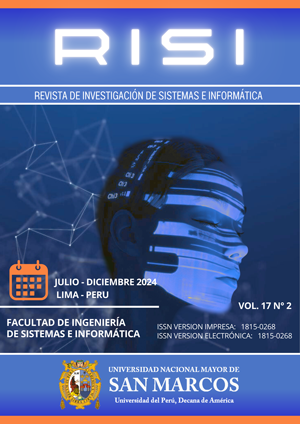Analysis of machine learning algorithms to evaluate the academic performance of students in the subject of Mathematics
DOI:
https://doi.org/10.15381/risi.v17i2.29723Keywords:
Academic Performance, Prediction Algorithm, Machine Learning, AccuracyAbstract
The academic performance of students is crucial for the educational and social development of a country, as it directly impacts the future opportunities of young people and the collective progress of society. Mathematics plays a fundamental role in basic education, yet many students face difficulties that affect their academic performance and can limit their long-term development. This challenge is reflected in the results of the Program for International Student Assessment (PISA), which highlights the gaps in mathematics learning globally. The present research seeks to identify the most accurate machine learning algorithm for predicting the academic performance of high school students in mathematics. The approach adopted is quantitative, with a non-experimental, applied-type design. The sample included 400 students, whose data were obtained from a public repository at the University of California, Irvine. The data collected covered demographic, academic, psychological and social factors, among others, totaling 30 key variables. These data were used to train and evaluate various machine learning algorithms to identify the most important determinants in the learning process. The most accurate algorithm was the Dense Neural Network, reaching 74% accuracy, demonstrating its effectiveness in predicting academic performance. The results revealed a positive and significant relationship between the variables analyzed and academic performance, suggesting that improvements in these variables could increase the students' academic average.
Downloads
Downloads
Published
Issue
Section
License
Copyright (c) 2024 Beatriz Angelic Paredes Quispe

This work is licensed under a Creative Commons Attribution 4.0 International License.
AUTHORS RETAIN THEIR RIGHTS:
a. Authors retain their trade mark rights and patent, and also on any process or procedure described in the article.
b. Authors retain their right to share, copy, distribute, perform and publicly communicate their article (eg, to place their article in an institutional repository or publish it in a book), with an acknowledgment of its initial publication in the Revista de investigación de Sistemas e Informática.
c. Authors retain theirs right to make a subsequent publication of their work, to use the article or any part thereof (eg a compilation of his papers, lecture notes, thesis, or a book), always indicating its initial publication in the Revista de investigación de Sistemas e Informática (the originator of the work, journal, volume, number and date).


